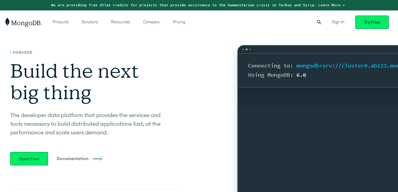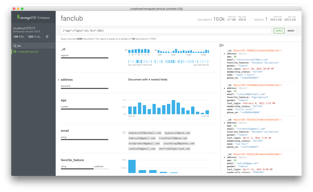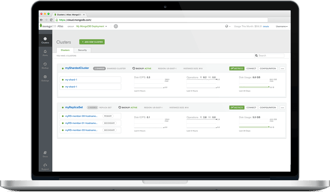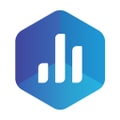

Unclaimed: Are are working at MongoDB ?
MongoDB Reviews & Product Details
MongoDB is a NoSQL database that supports scalable, and high-performance data storage solutions. The platform’s automatic sharing features combined with real-time analytics and horizontal scalability empower businesses with efficient data management.

| Capabilities |
API
CLI
OSS
|
|---|---|
| Segment |
Small Business
Mid Market
Enterprise
|
| Deployment | Cloud / SaaS / Web-Based, Desktop Mac, On-Premise Linux, On-Premise Windows |
| Training | Documentation |
| Languages | English |




Compare MongoDB with other popular tools in the same category.

What I like best about MongoDB is that it is simple and fast. There isn't a huge barrier to entry like with RDBMS's. When I first started working as a MSSQL developer, I would go home with my brain spinning for months wrapping my head around all the concepts and challenges. With MongoDB, within the first week I was like wow, I love this, it just makes sense.
I dislike the .NET driver implementation, it could use a rework in my opinion. You have to use tons of classes to build up your queries. It would be great if it took advantage of parameterized strings and more closely followed the pattern of the mongo shell.
I'm storing data for social analytics and writing an intranet that uses MongoDB as it's data store. It has been very beneficial to have a datastore that stores my javascript documents in the same basic format instead of having to normalize and denormalize everything to get it in and out of MSSQL.
Working with data in a manner that leverages my JavaScript know-how
Maybe the absence of some sort of GUI platform
Data persistence in apps, data scraping and data visualization.
It's fast, efficient and easy to use. It's also reliable and easily works with my favourite frameworks like Rails and Meteor. There a lot of other NoSQL solutions but MongoDB is one of the fastest growing solution.
The syntax can be somewhat confusing when digging deep database problems
I'm a founder of an e-commerce website.
MongoDB structures data into collections of JSON documents. This is the most important thing I have liked about MongoDB. Also, I can get great performance out of MongoDB, even if my entire database doesn't fit in RAM. Further, we don't need to worry about messing with system collections, local, admin or config databases directly. There are administrative commands and shell helpers for the operations we will need to perform.
Real time data streaming is not very efficient with this database. Also, large query time in searching through large data sets.
Making the learning process in sales industries methodical and deploying courses for them on a large scale to make the teaching interaction smoother. MongoDB is used for the monitoring of performance of people and analyzing them.
Mongo is the best option for web based apps and can be used with other databases too. Is a perfect match for applications made on Node.js - and more, his scalabity and speed are amazing, making this database the first choice for startups and other bussiness with core on inovation.
The database need some improvements like unique keys, but in general he is perfect! :)
My tear are making some integrations with websites and mobile apps and using Mongo DB we can get fast response using sharding and others features. This DB is amazing fast and flexible!
Ease of use, retrieval speed, don't use contrast colors for gui
Make it more user friendly by using more gui
Quicker retrieval
There are no joins and it is much faster comparing to SQL
There is not much van be done from the UI side
faster, reliable solutions with fewer problems
I did a great research of NoSQL document oriented databases. MongoDB was my ultimate choice and I haven't regretted it yet. I loved the online documentation, the great books, the huge community. Technically, I've been running a web application with MongoDB with 3 shards and 2 replicas for 5 months now and it's working so smoothly it scares me.
Being used to work with MS SQL, I miss the Management Tool application. I found some client apps for Mongo, like Robomongo, but still haven't found the one that makes me feel completely covered and comfortable.
MongoDB solves every database related problem for a modern web application. Dynamic document structure, rapid searching, ease of learning, etc.
MongoDB offers a fast development model over the traditional relational / SQL systems.
The lack of good instrumentation to understand the internal state
Startups development is all about experimentation, both in terms of business model and technical implementation. Using MongoDB it is possible to very rapidly construct and test ideas.
The flexibility & the ease with which it can handle complex data models is amazing. Look no further if you need a datastore that can handle complex data structures, is fast & can be deployed in minutes.
The Query language is very expressive but for those coming from traditional RDBMS world, a SQL like alternative would be very helpful. They are moving in that direction with the BI connector I guess. I still see MongoDB as a good candidate for App development, but further stress could be laid on Analytics and connecting MongoDB with existing tool sets.
A data lake in MongoDB is envisioned to consolidate various sources, help the analyst in discovery. The future state would involve a data processing engine like Spark to extract meaningful results from the data.
